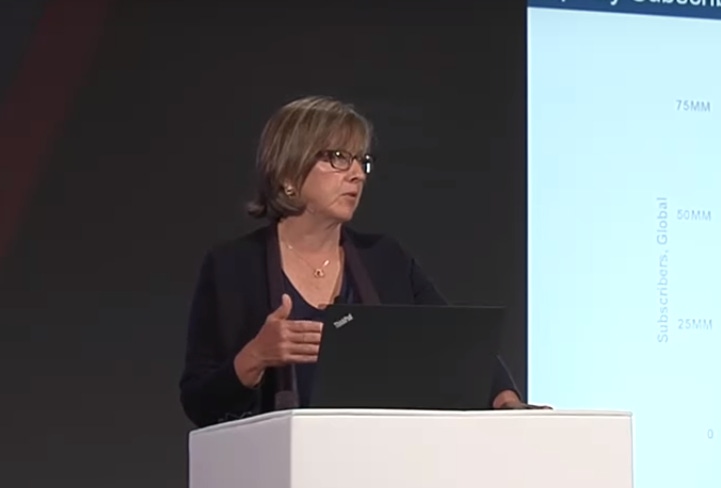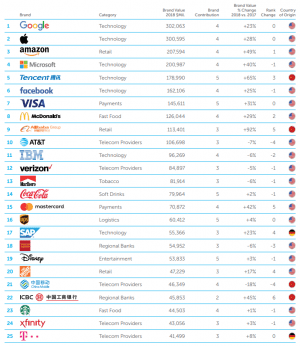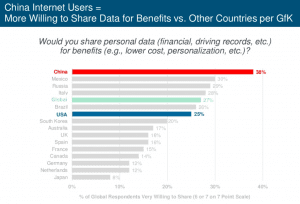European tech ambitions might be hampered by regulation – Meeker
Mary Meeker is one of the most respected names worldwide when it comes to the internet, meaning her annual evaluation of the state of play is a much anticipated presentation. 2018 looks to be a bit gloomy though.
May 31, 2018

Mary Meeker is one of the most respected names worldwide when it comes to the internet, meaning her annual evaluation of the state of play is a much anticipated presentation. 2018 looks to be a bit gloomy though.
First of all, looking at consumer trends there are some very positive numbers. Internet usage continues to growth year-on-year, adults spend an extra 0.3 hours a day on the internet in 2017 compared to the 12 months prior, and there is strong evidence the rate of adoption is continuing to increase. While it took 80 years for US consumers to adopt the dishwasher, the consumer internet penetrated the mass market in less than a decade. For disruptive technologies lurking on the horizon, such as virtual reality, this is a very positive trend.
 Looking at the technology industry on the whole, this is another very positive development. The tech industry is continuing to play a more influential role in economies around the world, in the US for example, it accounted for 25% of the country’s capitalization in April. The percentage might not be as high in other nations, but the trends are heading that direction. Technology is fast becoming the driver of economies and society, which is perhaps a worrying sign for Europe.
Looking at the technology industry on the whole, this is another very positive development. The tech industry is continuing to play a more influential role in economies around the world, in the US for example, it accounted for 25% of the country’s capitalization in April. The percentage might not be as high in other nations, but the trends are heading that direction. Technology is fast becoming the driver of economies and society, which is perhaps a worrying sign for Europe.
One slide, which you can see to the right, pointed out the biggest names in the business world, with only one being from the European continent. The US has nineteen representatives while China has four. The organizations which are making headway in recent years have mostly been created inside the last two decades, and while Europe might be trying to improve the landscape for start-ups, it is clear the ability to scale is not on the same level as the US and China.
Unfortunately for the European start-ups this might be a trend which will only worsen over the coming years, partly due to restrictive regulations. Regulating an industry where there are still so many unanswered questions, like the data economy, is a tight-rope walk. Too light-touch and the corporations take advantage, too heavy-handed and innovation is throttled. The pro-privacy bloc seems to leaning towards a red-tape maze.
Europe is a distant chaser as it stands, but GDPR and the up-coming e-Privacy regulation threatens to limit the exploratory nature of tech innovators. Other regions are granting more freedom to explore, which could impact Europe negatively in two ways. Firstly, companies in Silicon Valley, for example, create better products and services, therefore capturing global market share. And secondly, when choosing a base, entrepreneurs may choose to go to the freer markets as opposed to being shackled in Europe. Europe loses ground on the US and China in both circumstances.
“It’s crucial to manage for unintended consequences,” said Meeker. “It’s also irresponsible to stop innovation and progress, especially in a world where there are a lot of countries that are doing different things.”
 What we should point out is that Meeker is biased. Meeker is a venture capitalist who invests in technology companies with the sole purpose of making more money. Regulations, while necessary, make it more difficult for companies to make money, so you have to take Meeker’s comments bearing this in mind.
What we should point out is that Meeker is biased. Meeker is a venture capitalist who invests in technology companies with the sole purpose of making more money. Regulations, while necessary, make it more difficult for companies to make money, so you have to take Meeker’s comments bearing this in mind.
That said, the digital economy is defined by data. Personalised services are developed by access to data, so are location-based services, the price of some are off-set by access to an individual’s data, engagement and experience can be improved as well. The US are the leaders in the internet world because companies are aggressive and forward-thinking. With the stringency of data regulations in Europe, you have to wonder whether the same culture and intent can be curated in the bloc.
Looking at the potential for tomorrows leaders, despite President Trump demonstrating the world cannot function without the US tech industry, prospects in China are looking promising. AI has been targeted as the catalyst for growth and with a population which is more open to sharing personal data than anywhere else in the world, the raw materials are available. Data provides the fuel for rapid development and advancement of AI. Europeans are generally very pro-privacy, which is of course good, but reluctance to share data is a direct contradiction of the AI ambitions of countries like the UK. Pro-privacy regulations, conscious consumers and a world-leading AI industry do not necessarily go hand-in-hand.
Regulation will always have a place in the world, evidence proves some cannot be trusted when money is involved, but it seems Meeker believes Europe is leaning too heavily on the technology companies, imposing restrictions which will not be beneficial to the growth of the digital economy. Changes needed to be made to the rules, but it doesn’t seem Europe has got it right this time.
About the Author(s)
You May Also Like











_1.jpg?width=300&auto=webp&quality=80&disable=upscale)


.png?width=800&auto=webp&quality=80&disable=upscale)